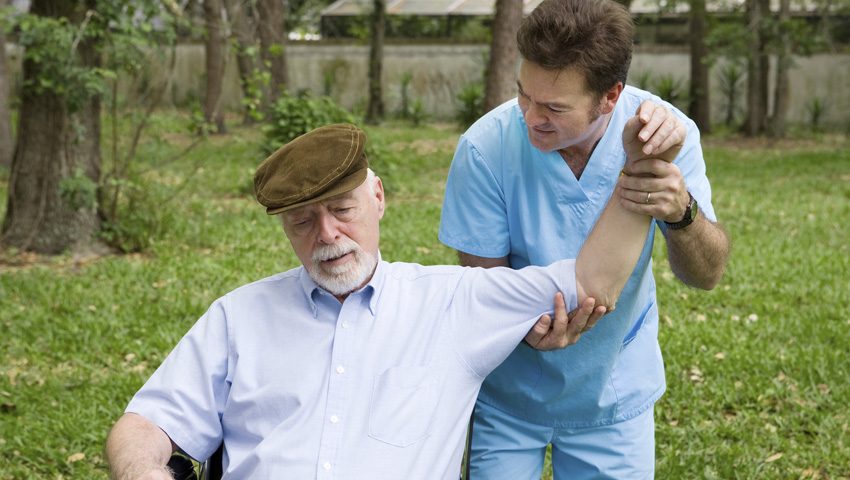
Proper Elder Care
November 5, 2013
Coping with Nursing Home Abuse
March 26, 2014Family issues may be a contributing cause of elder abuse. About 90 percent of elder abuse happens in residential settings, as opposed to the commonly held belief that elder abuse is more prevalent in nursing homes. In many cases of elder abuse it is adult children of the patient or other family members that are committing the abuse.
Family Issues and Stress
When an elderly family member is diagnosed with a debilitating condition or is no longer able to perform daily tasks alone, it can be stressful for family members. Family members may have to alter work schedules, quit jobs, or move in order to take on the role of caregiver. The added stress of caring for an incapacitated family member can put strain on other relationships, cause financial difficulties, and lead the caregiver or other family members to resent the elderly relation. This stress can contribute to a relationship in which the caregiver or other family members begin to abuse the elderly patient.
Family Issues and Abuse
In many situations, abuse does not start immediately, but begins as an unbalanced and unhealthy relationship develops. Abuse often starts out as emotional abuse by a caregiver or other family member and escalates. In some cases, physical abuse may begin to take place.
Emotional Abuse
Emotional abuse occurs when an abuser mocks, threatens, yells at, or degrades a patient. This type of abuse can contribute to family issues, as children and other adults that reside in the home are affected by the negative atmosphere. The gap between the abuser and the elderly patient may widen, with family members often siding with the abuser because of the perceived power structure.
Physical Abuse
Situations in which a family member begins to physically abuse an elderly patient can lead to further power imbalances, and additional family issues can develop. The abusive family member may begin to physically abuse other family members in addition to the elderly patient as stress mounts. Family issues with other household members may also develop, such as psychological trauma and physical ailments.
Financial Abuse
Financial abuse may also stem from family issues. Family members may feel that the elderly patient owes compensation for the care being given, and may begin to steal money or sell assets. Family issues can develop from the disparity in views on what the caregiver is using the elderly patient’s money for and what the patient feels the money should be used for.
Past Family Issues
Past family issues can also be contributing factors to elder abuse, in some cases. If there have been family issues in which the elderly patient was abusive towards the caregiver or another family member, the family member may feel that abuse is a form of retribution. The type of abuse is not necessarily always the same, and sometimes a family member will emotionally abuse a patient that was physically abusive, or physically abuse a patient that was emotionally abusive. Financial abuse may also be seen as retribution, with the abuser feeling that compensation is owed for past abuses.
Family Financial Issues
In some cases, past history of family issues with finances may be a contributing factor to elder abuse. If the elder was a caregiver to a family member that is now responsible for care, the family member may feel that the elder did not provide well enough. This perception may cause the caregiver to neglect the elder’s needs or commit other types of abuse in retaliation for the perceived lack of care in the past.
Current Financial Issues
Family members may also blame elder relatives for current financial problems that may be causing family issues. The caregiver may begin to emotionally or physically abuse the patient because of stress or revenge perceptions, or may begin to abuse the patient financially to compensate for personal financial issues. Financial issues may also contribute to a neglectful situation as the abuser puts priority on personal care over the care of the elderly patient.
Sources:
“Elder Abuse and Neglect.” American Psychological Association. American Psychological Association, n.d. Web. 27 Feb 2014. <https://www.apa.org/pi/aging/resources/guides/elder-abuse.asp&xgt;.
“Elder Abuse: Definitions.” Centers for Disease Control and Prevention. Centers for Disease Control and Prevention, 14 Jan 2014. Web. 27 Feb 2014. <http://www.cdc.gov/violenceprevention/elderabuse/definitions.html>.
“Statistics/Data.” National Center on Elder Abuse. Department of Health and Human Services, n.d. Web. 27 Feb 2014. <http://www.ncea.aoa.gov/Library/Data/index.asp&xgt;.

